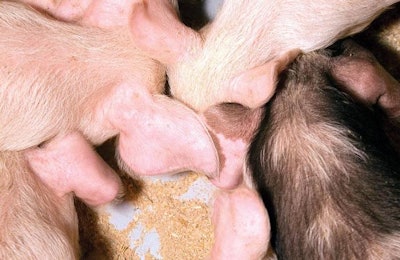
Russian veterinary Rosselhoznadzor made a statement that as of December 1 imports of Brazilian pork and beef would be banned after traces of the muscle growth promoter ractopamine was traced in several shipments of meat from Brazil.
Ractopamine is a feed additive that is used to promote leanness in animals raised for slaughter. It is the active ingredient in products known as Paylean for swine and Optaflexx for cattle. While it has been banned in many countries, the U.S., Canada, Japan and numerous other countries have deemed it safe for animals that will later be used for human consumption.
Brazil's minister of agriculture, Blario Maggi, has said that the country would make the proper changes to their products to ensure Russia the product they want and resume shipments of meat post-harvest. He added that Brazil’s veterinary system had been working to make sure there was no ractopamine in meat sent to Russia and that these issues may be related to individual companies implementing the drug against advisory.
Brazil will see negative impact, while Russian producers may benefit
Russia’s National Pig Farmer Union reported that total pork imports to Russia are on the rise for the first time in four years and have the potential to reach 300,000 metric tons. This ban will hurt Brazil, as they were responsible for supplying Russia with 90 percent of its pork shipments.
Some Russian suppliers look to gain profit from the ban. Miratorg Agribusiness Holding is one of those potential suppliers that could prosper from the lack of Brazilian competition. Miratorg’s president, Viktor Linnik, told RBC newspaper that Brazil sells 1 billion dollars’ worth of meat to Russia every year. Without Brazilian contribution, Russian suppliers may look to fill the gaps.
Miratorg had plans of expansion before the ban was even announced. A large integrated pig production complex planned by Miratorg, in the district of Oktyabrsky, is scheduled to come into production as early as 2020. A pig slaughter and deboning line is planned to start operations the following year. More than 5,000 new jobs will be created in the area.
At an event to mark the groundbreaking on the meat packing plant, Linnik said the project represents the latest step in Miratorg’s commitment to double both its annual pig breeding capacity to 7.7 million head and pig meat output to one million tons (live weight).
The firm’s output will be able to cover Russia’s requirement for chilled pork, and thus potentially end the need for future imports.
Russia will struggle to find an international alternative to Brazilian pork in the meantime, as imports from the U.S., Canada and the European Union will remain banned, explained Russia’s chairman of the National Meat Association, Sergey Yushin.















